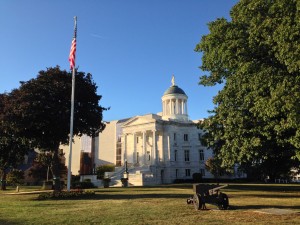Law, Policy, People, and Stop-and-Frisk
Stop and Frisk in Brownsville, Brooklyn:
Residents Question a Police Tactic
I have blogged about Donald Trump‘s support for the NYPD use of stop, question, and frisk as a national model. Please watch this 2010 report about the law, policy, people, and stop-and-frisk in Brownsville. Do cops issue tickets in part to make money for their municipalities? Will Trump adopt a stop-and-frisk policy for Muslims in order to create the national database he promised? When does public cynicism influence policy? To borrow the words of Benjamin Franklin, should Americans give up some of their liberty to get a little temporary safety? Read more



![The Peacemakers, George Peter Alexander Healy, [Public Domain] via Wikimedia Commons Abraham Lincoln, William Tecumseh Sherman, Ulysses S. Grant, David Dixon Porter, River Queen, 27-28 March 1865, Emancipation Proclamation, Benjamin Franklin Butler, Contrabands of War, United States Constitution, Slavery, Articles of Confederation, Dred Scott v. Sanford 60 U.S. 393 (1857),](http://upload.wikimedia.org/wikipedia/commons/thumb/a/a4/The_Peacemakers_1868.jpg/1022px-The_Peacemakers_1868.jpg)